Today I will tell you a story about how one day I sat down at the table, unable to cope with my fear. First, the stakes for me at that time were quite high. Yes, sometimes I've played $500/$1,000 and up with a decent bankroll, and then I felt very comfortable. However, I approached that memorable day on a backdrop of setbacks, and my bankroll didn't quite match such an expensive game. Secondly, my rival was Cadillac1944. A recreational player, of course, otherwise I would not play so expensively, but incredibly aggressive. In our matches, he 3-bet 50% of hands. A normal modern 3-bet rate is 18-20%, and the standard for 2010 is 10-12%. So his style made the game even more expensive. Therefore, I was nervous when I sat down at the table, and this certainly influenced my decisions. Let's get a look!
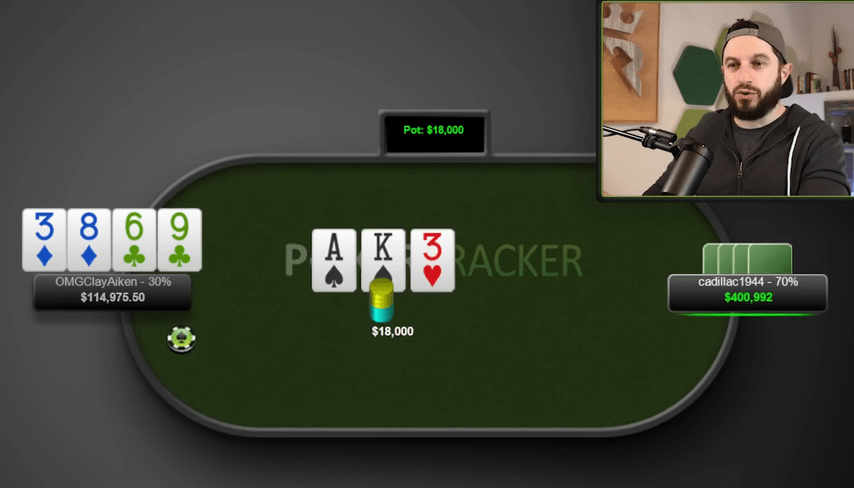
I raise and call the 3-bet. By the way, maybe I should have limped more against this strategy? Would he 3-bet less often against a narrower opening range?
He checks on the flop. It's not played like that these days, although when you're 3-betting half your hands, maybe checking is appropriate.
I make a small bet, $5,500, and he folds. I probably had a read that either he often check-folds in general, or only on textures that are good for him. The start is good.
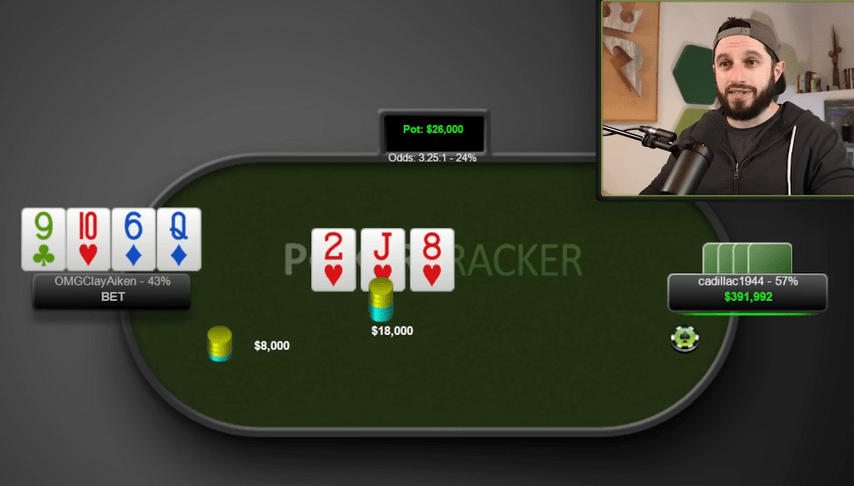
After a raise, I 3-bet with , it's very modern! Didn't know I was 3-betting like that in 2010! I bet a small amount on the flop, which is also correct, although now I use an even smaller sizing. He folds.
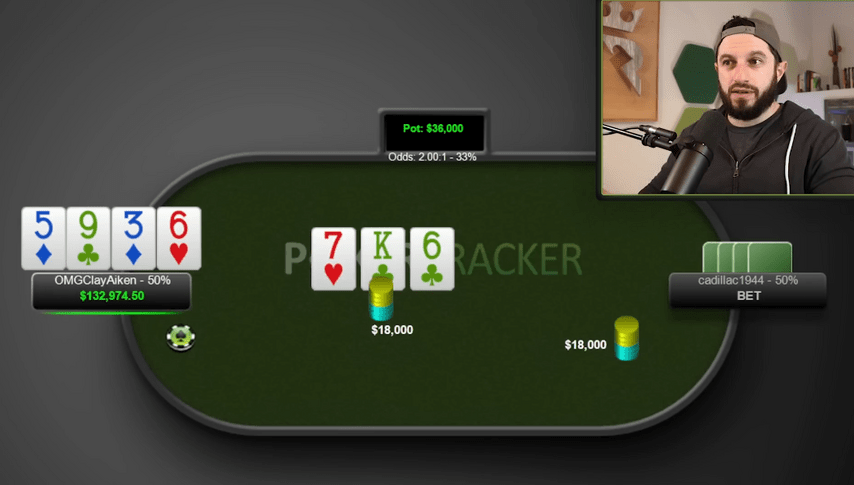
I would not approve opening with this hand against a man with a 50% 3-bet rate today. I think it's better to limp here.
I raise, call a 3-bet, and get a flop with a pair and a double gutshot in an overinflated pot, while my opponent bets the full pot. I think the only option to continue is to call. Yes, I call.
Turn ($54,000):
He bets the pot again and I'm left with nothing but a fold. Unfortunate.
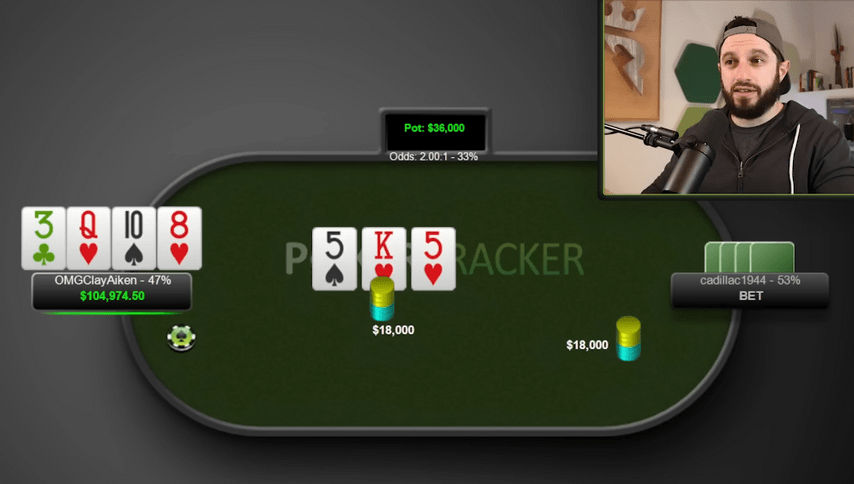
Raising and calling a 3-bet is okay. He bets the pot on the flop. Now they don't play like that. In general, he often bet the pot on the flops, for this he did not need a particularly strong hand.
I think I should call. Calling with a flush draw to a queen is better than calling with , because both hands don't beat Villain's value range, but flush draws have more outs to improve.
I call. Fine.
Turn ($54,000, effective stack $86,975):
He checks... The problem is that there are two flush draws on the board. He won't fold a five on the turn. But if I check, can I reliably represent something on the river? Not sure. I guess I like to bet a little on the turn to get him to fold the weakest part of his range.
I bet $20,500. Oh, okay, we understand poker the same way!
He calls.
River ($95,000, $66,475 effective stack):
And he bets all in. Yes, now I remember this hand. He had aces with a flush. I called.
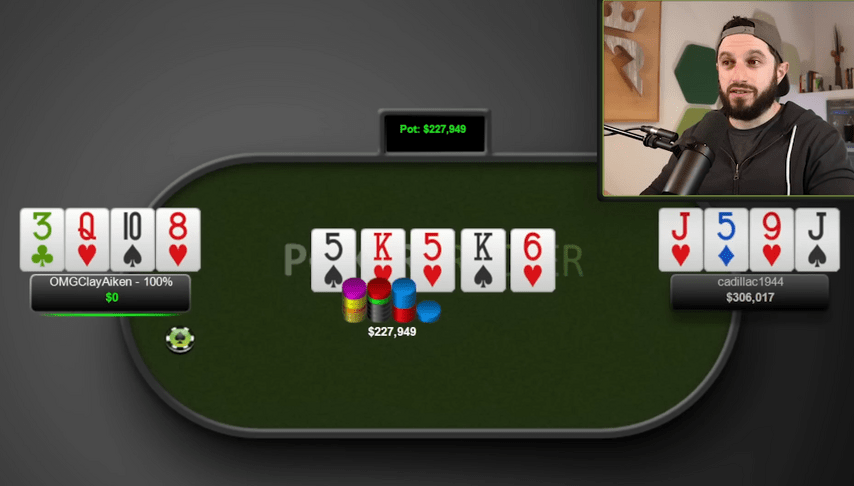
Oh no aces. So I didn't remember exactly! Trips fives and a flush to a jack. Great start, and I'm pretty lucky.
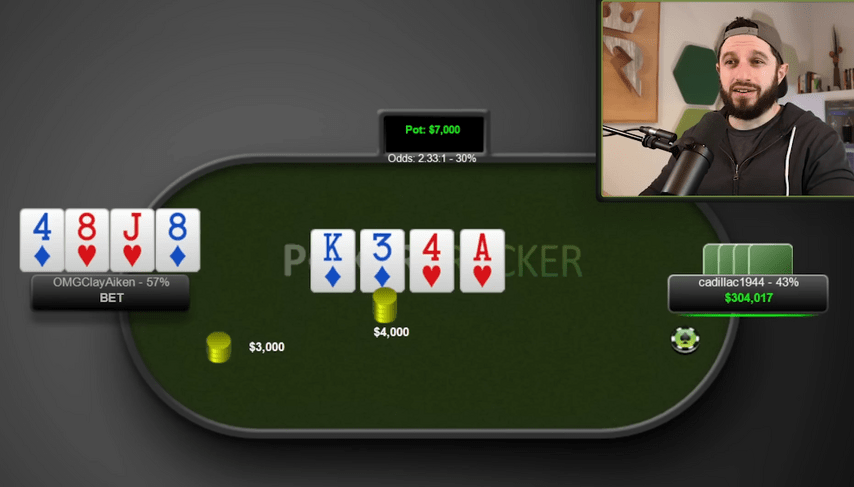
He min-raises from the button, I call. On the flop, check-check. I have two flush draws on the turn, I don't know which line I like best, but this bet is fine. He folds, and I take the pot.
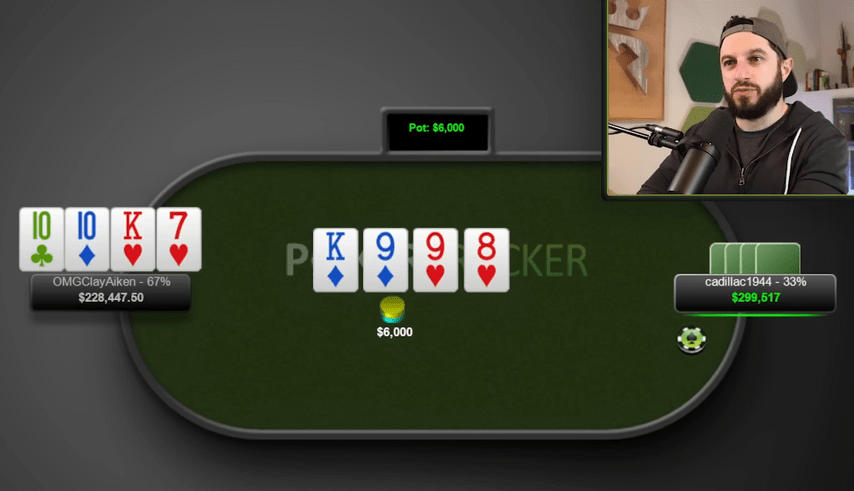
I call a raise preflop, I check the flop, and he checks next. I check the turn... I don't like this check because it's time to bet with my hand. At that time, I didn't have a small sizing in my arsenal, which is ideal for this situation. However, it is also quite possible to put 2/3 the pot.
The opponent checks next.
River ($6,000):
A clear check on the river. He checks with and I win. I like his line. To be honest, it was a bit surprising that he didn't bet the turn.
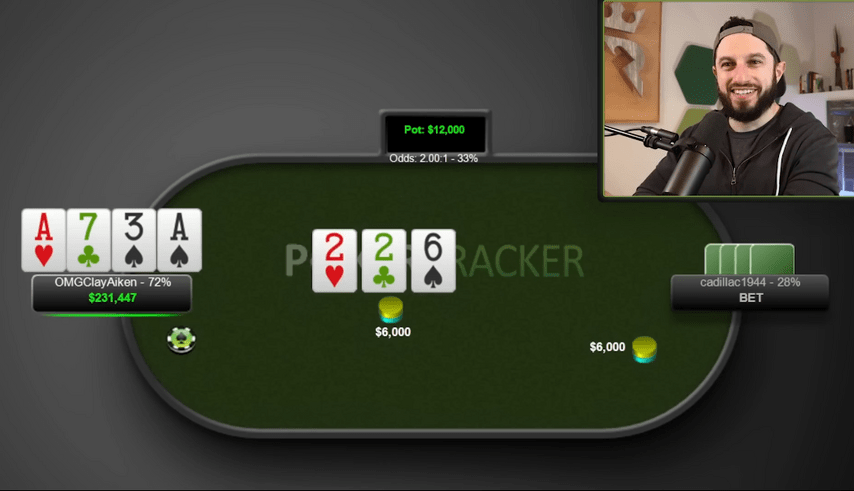
I get aces and he finally doesn't 3-bet! Instead, he donk bets with a full pot bet on the flop. Already quite unpleasant: he represents a deuce. However, we certainly won't fold aces with a backdoor flush draw. I call.
Turn ($18,000):
He checks. I think I should check too. He has a pretty polar range, and if he doesn't have a deuce, he's almost dead. I check next.
River ($18,000):
Checks again. I have no idea what he has. Some temptation to bet half the pot and hope to get some calls.
I check next and win against . Interestingly, he didn't bluff with threes when they turned into straight blockers.
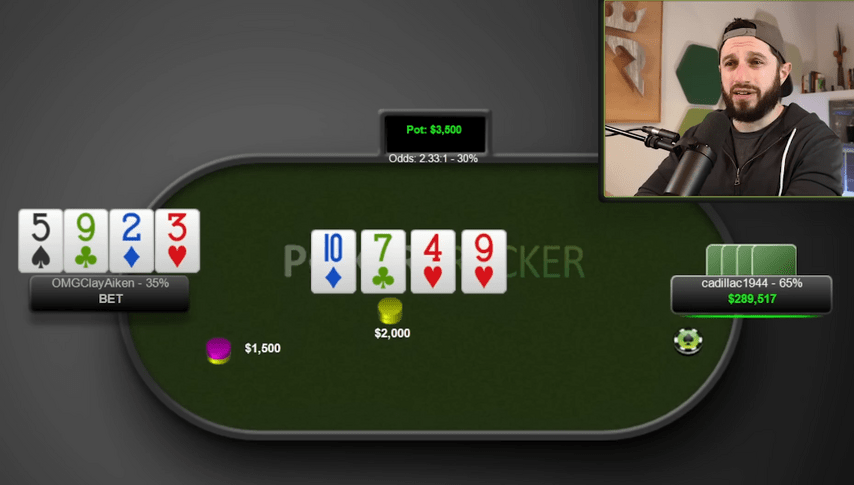
He limps and I check behind him. On the flop, check-check. I don't understand why I bet the turn. I don't like the bet. He calls.
River ($5,000):
I bet $4,000. Looks like it was a bluff and on the river I continue my aggression. He folds!
Hmm. I don't even know what to say here. Let's just watch the next hand!
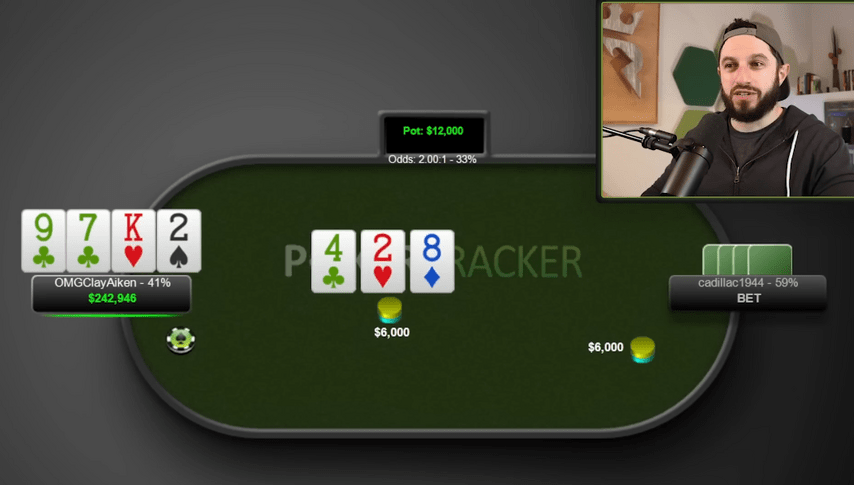
Wouldn't open this hand against a high 3-bet opponent. However, I raised and there was no 3-bet, but a donk bet on the flop. Button raises with weak hands don't work against this type of opponent!
I think against a full pot bet it's just a fold.
Instead, I raise $16,500. Some kind of nonsense – apparently, I just did not believe him. He 3-bets $55,500 in my face and I fold.
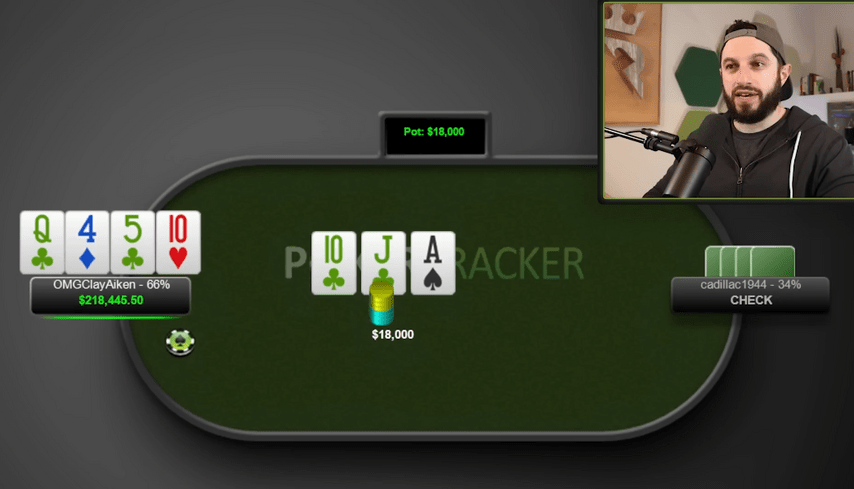
Raising and calling a 3-bet is fine. He checks on the flop. We have already seen that it can mean weakness in him. I bet big, $10,500, and he folds.
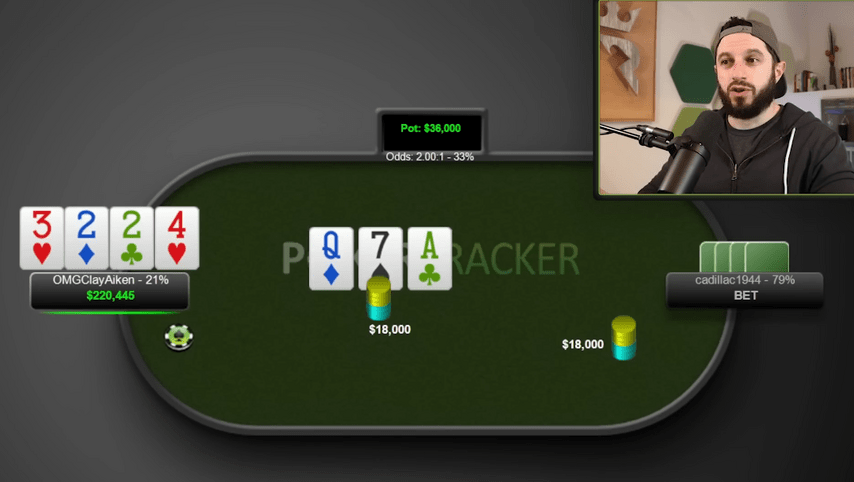
This hand should have been limped, but after a raise, calling a 3-bet is mandatory. The flop is easy to fold.
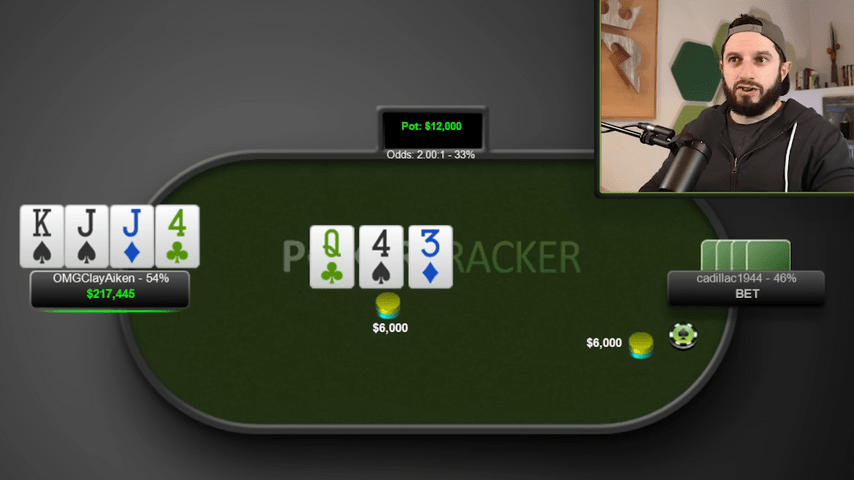
I call a raise preflop. Against a c-bet for full pot, I think this is a call. I call.
Turn ($18,000):
Check-check.
River ($18,000):
Checking and hoping for the best?
I check, and he bets $4,000. Ha ha! I don't know, I just don't know... I folded it. Yes, folding is not a mistake. Such situations are extremely dependent on reads, I don’t remember my own reads on him.
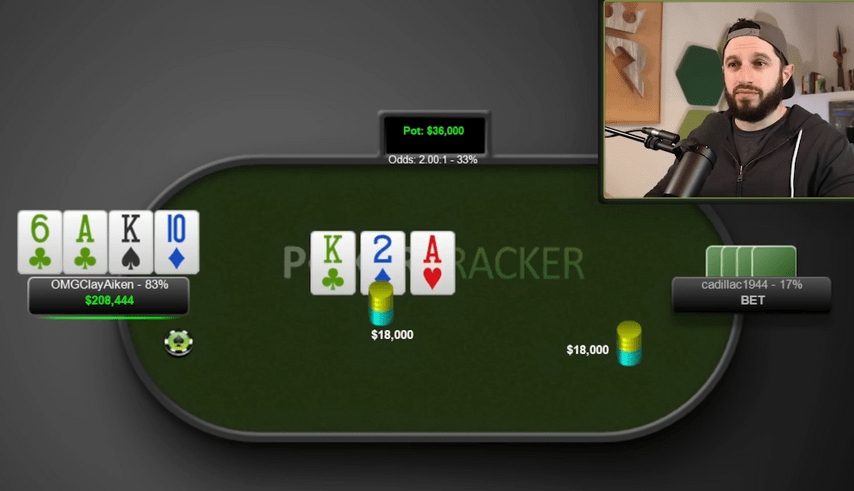
I raise and call the 3-bet. With 100bb stacks, it might be correct to 4bet with these hands, but we are 200+ blinds deep, so I like calling.
A pot bet on the flop is an easy call.
Turn ($54,000, effective stack $190,444):
He bets the pot. If I had $130k behind me, I would go all in. With $190k, I like calling better.
I'm going all-in. He calls and that's bad news.
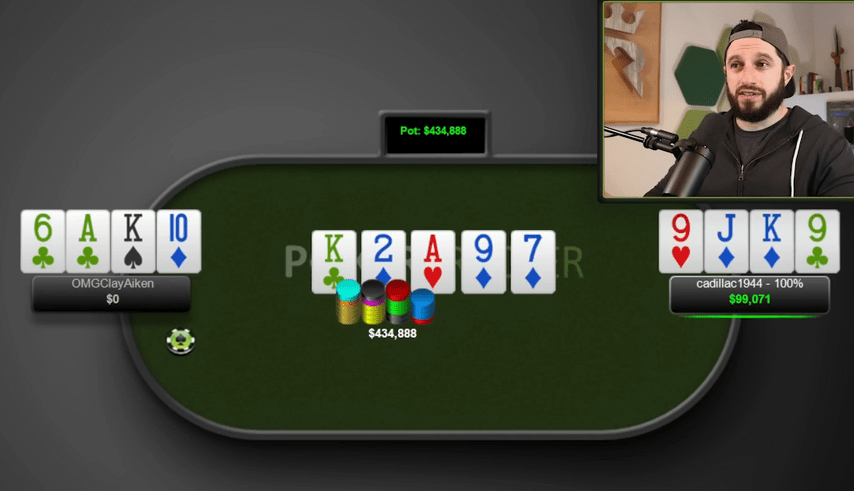
A set of nines and a flush draw. The question is, does he play the same with or and does he call? There aren't too many draws on this texture, not a single open-ender... So I like to call the turn and make a decision on the river. With the I'm doomed to lose to a flush, but it's quite possible to give up after the seven of diamonds.
And so we lost the pot of $430k. My fears seem to be justified.
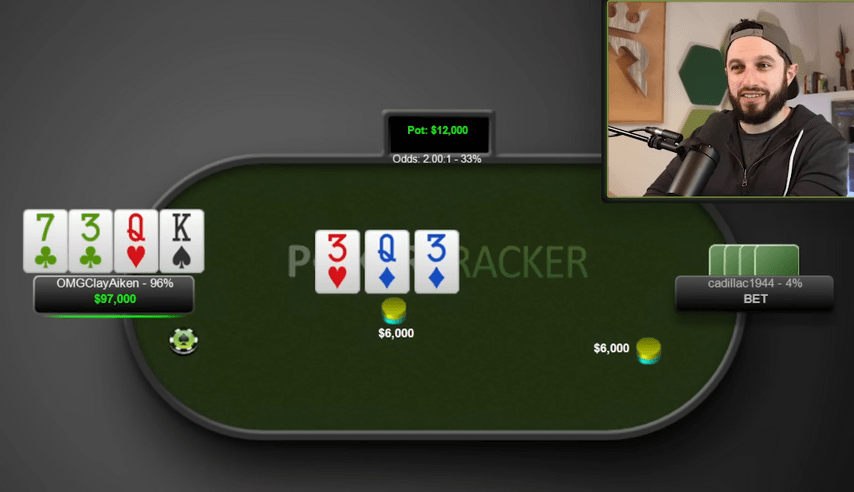
He calls my preflop raise and leads the flop. It's nice to see a pot bet when we have a hand! I think with I would raise with the idea of shoving against a weak three-of-a-kind, but with a full house like this, I like calling to give him a chance to improve to a weaker boat.
I raise to $15,500. He 3bets $52,500. Wow, how he presses on the gas. Okay, let's go with it.
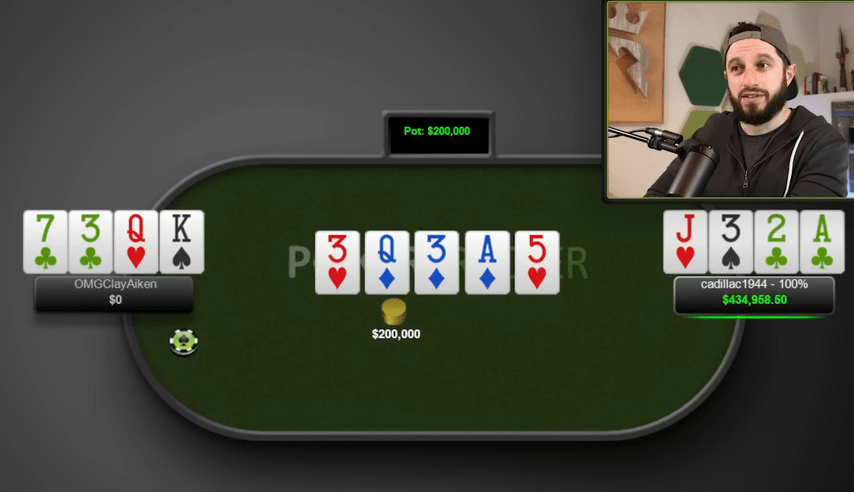
Yes, the ace is on the turn. Big trouble.
I think my flop raise shows that I was giving him a pretty strong range. His line on the flop isn't the right line because no one is leading trips with a pot bet, but after a raise from me, it's a mistake to push just trips.
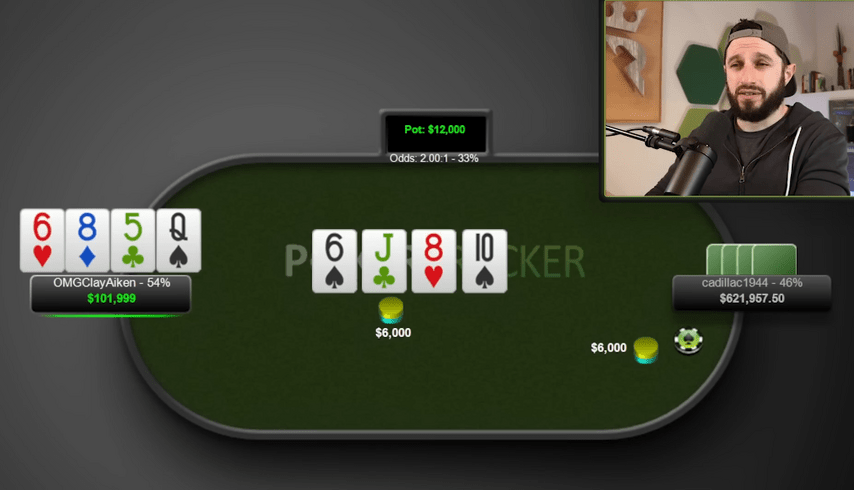
He limps, I check. I check-call the full pot on the flop. I check on the turn and he keeps betting. Fold it- you can do it.
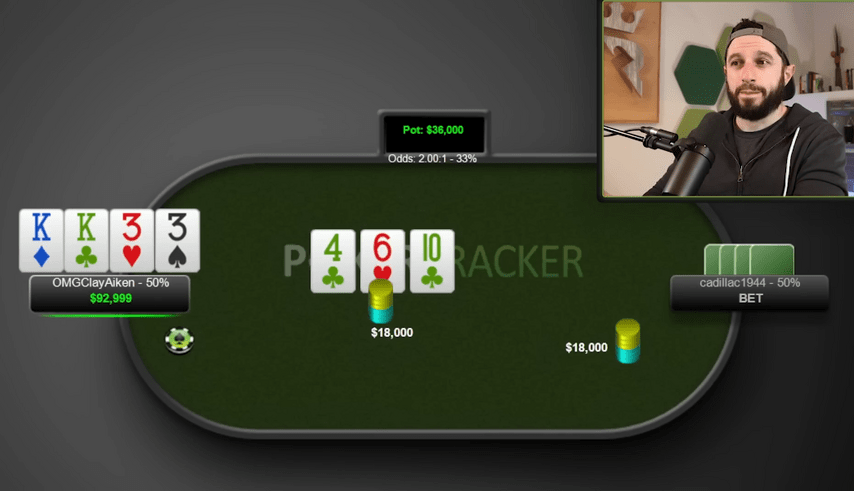
Raise and call a 3-bet...maybe I should have just called with my stack. On the flop, the situation is very unpleasant: he bets the pot and does it often and with a variety of hands, and we have an overpair – it seems to be difficult to throw away. I think I like calling the most, even though there will be a lot of difficult turns.
Raise up to $72,000. Yes, that's definitely easier. However, my equity against any hand that is ready to stack will be pretty disappointing.
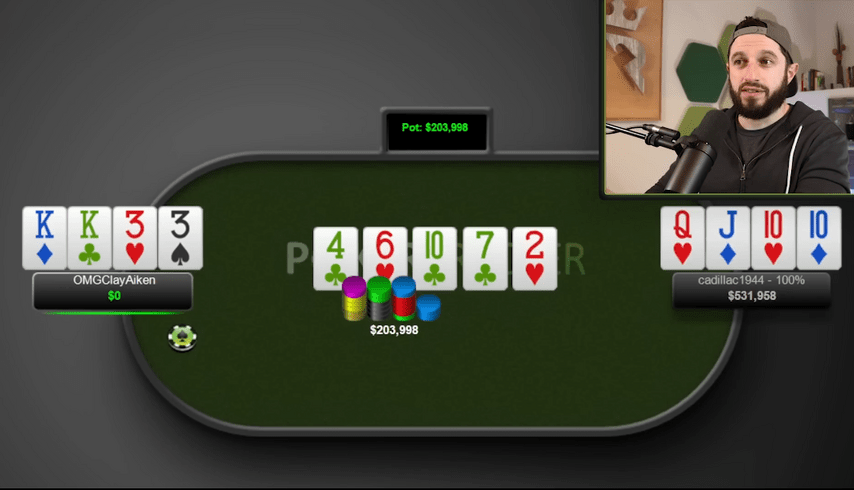
He had the usual big set. The situation is rapidly deteriorating.
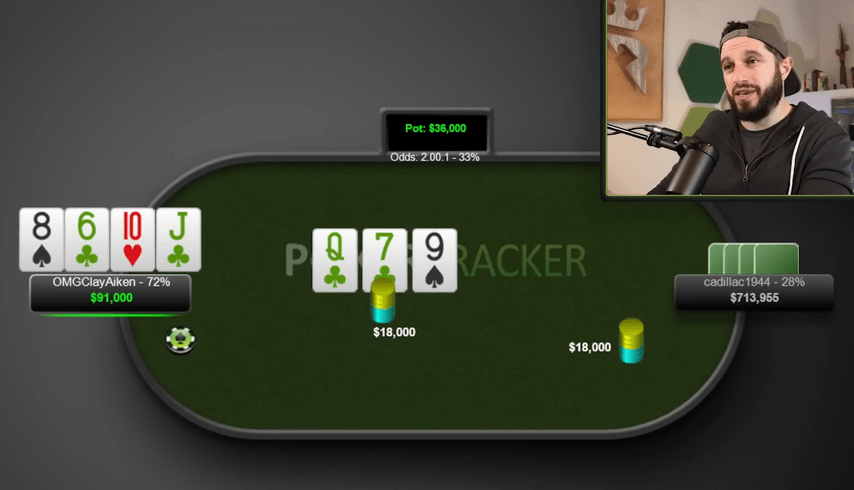
Raise, call a 3-bet, and a great flop. He bets the pot. Which is better, call or raise? I think I should shove because the extra fold equity is in my favor.
I raise, he's all-in.
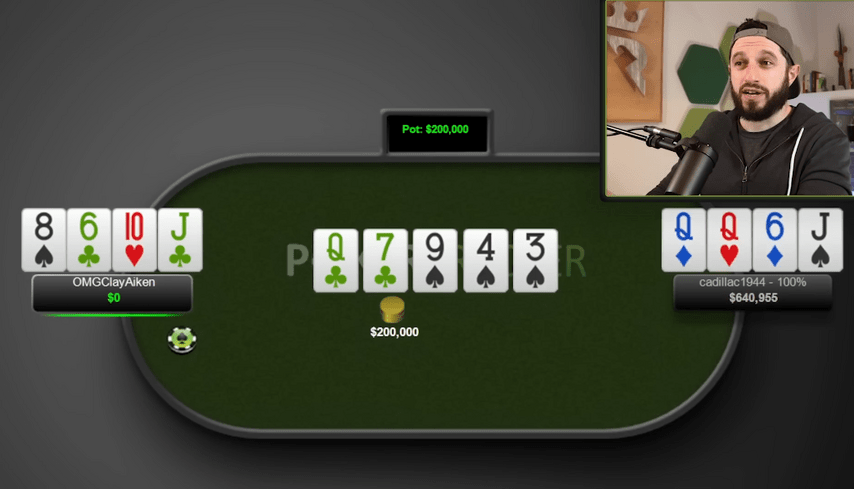
Again the top set.
We see him c-bet a lot, but he shows strong hands all the time, so it's hard to gauge how aggressive he really is. We've also seen him check and fold small to medium bets on good boards. It cannot be ruled out that the ranges of his aggressive lines are stronger than I thought.
In total, I lost $400,000 to him – an amount that I could not afford to lose at that time. Luckily, I was able to get up from the table in time without making things worse, and temporarily rolled back to lower stakes to rebuild my bankroll – a move that I had to make more than once or twice. But that day, chaos reigned in the Galfond house.
I don't know why, but quite often, when you take a big shot and are afraid and nervous at the same time, nothing good comes of it. Perhaps, these days, we would begin to play tighter and more defensively. I noticed a couple of examples in the course of this sad session, in which, I am sure, I did have the advantage.












